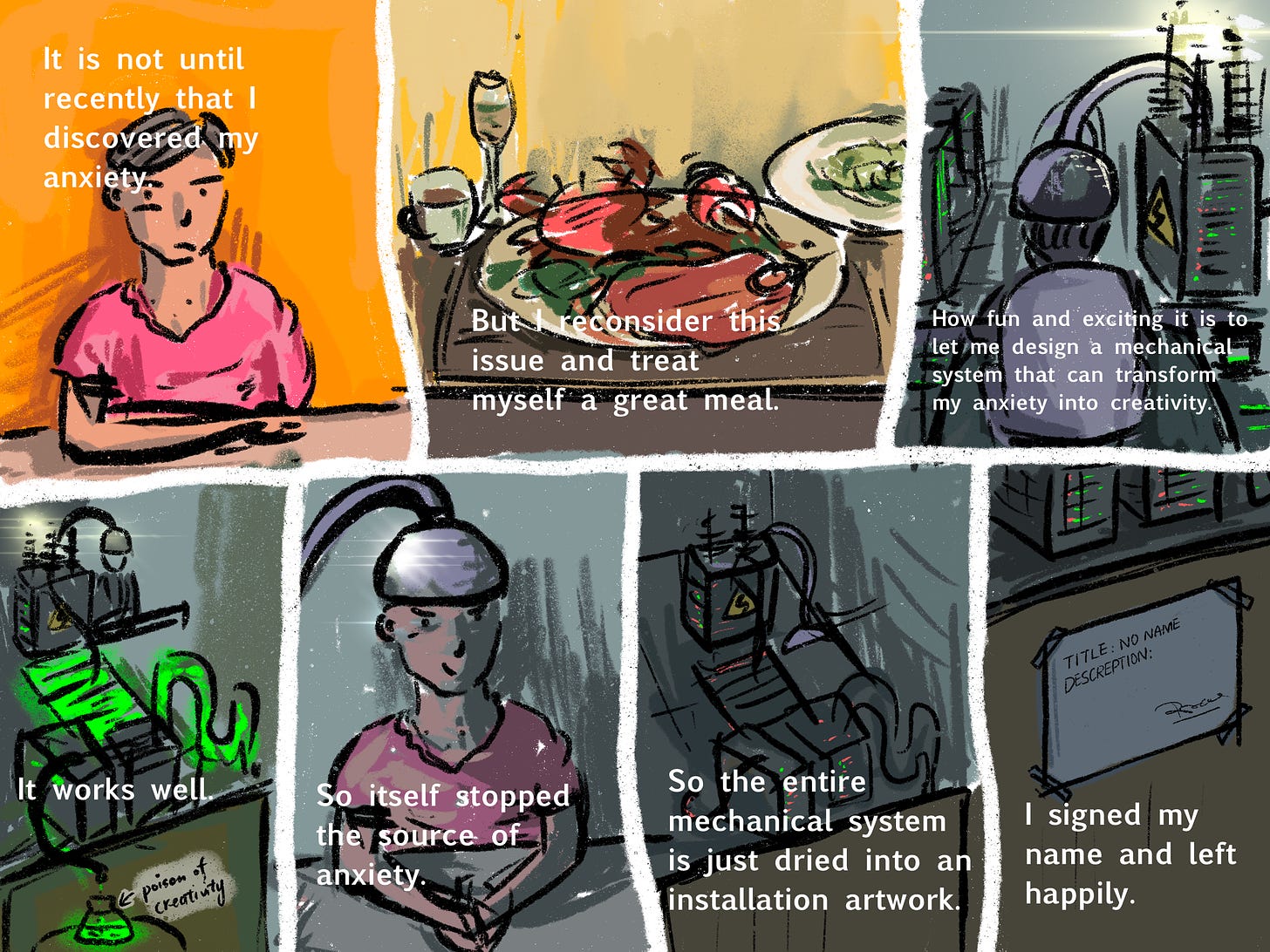Not long ago, I was plagued by anxiety - the kind that feels like you're trapped in the "Otherworld" of Silent Hill: gray days with no nights, ashes of emptiness floating upwards, and a looming sense of being devoured by AI and machines after any air raid siren. "What will most people do for a living in ten years? We can't just not work, right?" I exclaimed. "Mind your own business!" retorted my equally anxious friends with a touch of disdainful banter.
Indeed, I wasn't qualified to worry about such things - I had enough on my plate worrying about myself. To my fellow indie creators, it's unclear whether AI would be a friend or foe, but it's reasonable to assume that in the near future, it will be better at creating, expressing, summarizing, generalizing, and humor than most of us. Humans have always had a simple desire to engage in unbridled creative work, and I used to think that as long as I had a basic income guarantee, I could do the creative work I loved. If push comes to shove, I'd take on the challenge and try my hand at entrepreneurship, working alongside teams that serve creators, striving to lower the survival threshold for our community, provide better security, and access more abundant external resources.
However, AI has led me to doubt whether human creativity, as an exploration of the vast possibilities of the world, will gradually diminish in importance, eventually only serving personal or group self-indulgence - mere self-entertainment. This realization left me quite frustrated, discovering my anthropocentric nature but feeling powerless to do anything about it, which only fueled my depression and anxiety.
It wasn't until I carefully read through Chapter 6, "The Future of the Creator Economy," in Li Jin's 2019 Creator Economy Open Course that I had an epiphany. Li Jinborrowed Chris Dixon's famous quote, "What the smartest people do on the weekend, everyone else will do during the workweek in ten years," and expanded it to say, "What children do today for entertainment will become the creator professions of the future."
Each technological revolution has eliminated existing jobs, but it has also increased the capacity and depth of perspectives previously accessible only to a select few (to the point where entire revolutions become liquidity providers for a new paradigm). From hardware to software and information, to services, to experiences, to meaning. Previously, meaning was constructed by society, defined within the rumblings of the social machine. However, new technologies have empowered individuals, allowing us to explore "individualized meaning." After all, the pursuit of individualized meaning is inherently human-centric, ensuring that humans will not become enemies of technology and algorithms.
The intellectual revolution has greatly expanded and deepened the pool of individualized meaning. Although "pool" may sound awkward, I insist on using it because it signifies the establishment of a valuation model. The establishment of a valuation model implies the possibility of participating in the entire economic cycle - the burgeoning "meaning economy" of the near future.
The concept of the "meaning economy" has no specific creator or inventor; rather, it is a trend and idea that has gradually formed in various fields and disciplines. It emphasizes people's need for meaning, purpose, and value in life, considering these needs not only as one of the basic human requirements but also as an essential driving force for economic development. The concept can be traced back to fields such as humanistic psychology, logotherapy, and existentialist philosophy in the 1960s, where scholars began exploring humanity's need for and pursuit of meaning and purpose in life.
In my view, one necessary condition for the "meaning economy" to no longer be held hostage by today's consumerism - and not merely be a value symbol assigned by brands and social structures - is its ability to be "individualized." Individualization means "knowing yourself," and AI serves as a marvelous and insightful mirror.
Suddenly, everything feels more comfortable. Anxiety dissipates. "Know thyself" will become the serious work of more and more people in the next decade. Power, bits, and meaning - all become elements, permeating everywhere and circulating with the pulse of human society.
On this topic, if you have any thoughts or ideas, feel free to reach out to me via email at callmerace@hotmail.com for a discussion.




